There’s a solitary man at the financial center of the Ferguson protest movement. No, it’s not victim Michael Brown or Officer Darren Wilson. It’s not even the Rev. Al Sharpton, despite his ubiquitous campaign on TV and the streets.
Rather, it’s liberal billionaire George Soros, who has built a business empire that dominates across the ocean in Europe while forging a political machine powered by nonprofit foundations that impacts American politics and policy, not unlike what he did with MoveOn.org.
Mr. Soros spurred the Ferguson protest movement through years of funding and mobilizing groups across the U.S., according to interviews with key players and financial records reviewed by The Washington Times.
In all, Mr. Soros gave at least $33 million in one year to support already-established groups that emboldened the grass-roots, on-the-ground activists in Ferguson, according to the most recent tax filings of his nonprofit Open Society Foundations.
The financial tether from Mr. Soros to the activist groups gave rise to a combustible protest movement that transformed a one-day criminal event in Missouri into a 24-hour-a-day national cause celebre.
“Our DNA includes a belief that having people participate in government is indispensable to living in a more just, inclusive, democratic society,” said Kenneth Zimmerman, director of Mr. Soros’ Open Society Foundations’ U.S. programs, in an interview with The Washington Times. “Helping groups combine policy, research [and] data collection with community organizing feels very much the way our society becomes more accountable.”
PHOTOS: Stunning scenes of violence in Ferguson
No strings attached
Mr. Zimmerman said OSF has been giving to these types of groups since its inception in the early ’90s, and that, although groups involved in the protests have been recipients of Mr. Soros’ grants, they were in no way directed to protest at the behest of Open Society.
“The incidents, whether in Staten Island, Cleveland or Ferguson, were spontaneous protests — we don’t have the ability to control or dictate what others say or choose to say,” Mr. Zimmerman said. “But these circumstances focused people’s attention — and it became increasingly evident to the social justice groups involved that what a particular incident like Ferguson represents is a lack of accountability and a lack of democratic participation.”
Soros-sponsored organizations helped mobilize protests in Ferguson, building grass-roots coalitions on the ground backed by a nationwide online and social media campaign.
Other Soros-funded groups made it their job to remotely monitor and exploit anything related to the incident that they could portray as a conservative misstep, and to develop academic research and editorials to disseminate to the news media to keep the story alive.
The plethora of organizations involved not only shared Mr. Soros’ funding, but they also fed off each other, using content and buzzwords developed by one organization on another’s website, referencing each other’s news columns and by creating a social media echo chamber of Facebook “likes” and Twitter hashtags that dominated the mainstream media and personal online newsfeeds.
SEE ALSO: Ferguson mock ‘grand jury’ indicts former Officer Darren Wilson for first-degree murder
Buses of activists from the Samuel Dewitt Proctor Conference in Chicago; from the Drug Policy Alliance, Make the Road New York and Equal Justice USA from New York; from Sojourners, the Advancement Project and Center for Community Change in Washington; and networks from the Gamaliel Foundation — all funded in part by Mr. Soros — descended on Ferguson starting in August and later organized protests and gatherings in the city until late last month.
Broaden issue focus
All were aimed at keeping the media’s attention on the city and to widen the scope of the incident to focus on interrelated causes — not just the overpolicing and racial discrimination narratives that were highlighted by the news media in August.
“I went to Ferguson in a quest to be in solidarity and stand with the young organizers and affirm their leadership,” said Kassandra Frederique, policy manager at the Drug Policy Alliance, which was founded by Mr. Soros, and which receives $4 million annually from his foundation. She traveled to Ferguson in October.
“We recognized this movement is similar to the work we’re doing at DPA,” said Ms. Frederique. “The war on drugs has always been to operationalize, institutionalize and criminalize people of color. Protecting personal sovereignty is a cornerstone of the work we do and what this movement is all about.”
Ms. Frederique works with Opal Tometi, co-creator of #BlackLivesMatter — a hashtag that was developed after the killing of Trayvon Martin in Florida — and helped promote it on DPA’s news feeds. Ms. Tometi runs the Black Alliance for Just Immigration, a group to which Mr. Soros gave $100,000 in 2011, according to the most recent of his foundation’s tax filings.
“I think #BlackLivesMatter’s success is because of organizing. This was created after Trayvon Martin, and there has been sustained organizing and conversations about police violence since then,” said Ms. Frederique. “Its explosion into the mainstream recently is because it connects all the dots at a time when everyone was lost for words. ’Black Lives Matter’ is liberating, unapologetic and leaves no room for confusion.”
#BlackLivesMatter
With the backing of national civil rights organizations and Mr. Soros’ funding, “Black Lives Matter” grew from a hashtag into a social media phenomenon, including a #BlackLivesMatter bus tour and march in September.
“More than 500 of us have traveled from Boston, Chicago, Columbus, Detroit, Houston, Los Angeles, Nashville, Portland, Tucson, Washington, D.C., Winston-Salem, North Carolina, and other cities to support the people of Ferguson and help turn a local moment into a national movement,” wrote Akiba Solomon, a journalist at Colorlines, describing the event.
Colorlines is an online news site that focuses on race issues and is published by Race Forward, a group that received $200,000 from Mr. Soros’s foundation in 2011. Colorlines has published tirelessly on the activities in Ferguson and heavily promoted the #BlackLivesMatter hashtag and activities.
At the end of the #BlackLivesMatter march, organizers met with civil rights groups like the Organization for Black Struggle and Missourians Organizing for Reform and Empowerment to strategize their operations moving forward, Ms. Solomon wrote. OBS and MORE are also funded by Mr. Soros.
Mr. Soros gave $5.4 million to Ferguson and Staten Island grass-roots efforts last year to help “further police reform, accountability and public transparency,” the Open Society Foundations said in a blog post in December. About half of those funds were earmarked to Ferguson, with the money primarily going to OBS and MORE, the foundation said.
OBS and MORE, along with the Dream Defenders, established the “Hands Up Coalition” — another so-called “grass-roots” organization in Missouri, whose name was based on now-known-to-be-false claims that Brown had his hands up before being shot. The Defenders were built to rally support and awareness for the Trayvon Martin case and were funded by the Tides Foundation, another recipient of Soros cash.
Hands Up Coalition has made it its mission to recruit and organize youth nationwide to start local events in their communities — trying to take Ferguson nationwide.
Years and weekends of ’resistance’
Hands Up Coalition has dubbed 2015 as “The Year of Resistance,” and its outreach program strongly resembles how President Obama’s political action committee — Organizing for Action — rallies youth for its causes, complete with a similarly designed Web page and call to action.
Mr. Soros, who made his fortune betting against the British pound during the currency crisis in the early ’90s, is a well-known supporter of progressive-liberal causes and is a political donor to Mr. Obama’s campaigns. He committed $1 million to Mr. Obama’s super PAC in 2012.
Mr. Soros’ two largest foundations manage almost $3 billion in assets per year, according to their most recent respective tax returns. The Foundation to Promote Open Society managed $2.2 billion in assets in 2011, and his Open Society Institute managed $685.9 million in 2012.
In comparison, David and Charles Koch, the billionaire brothers whom liberals often call a threat to democracy — and worse — for their conservative influence, had $308 million tied up in their foundation and institute in 2011.
One of the organizations that Mr. Soros funds, and which fueled the demonstrations in Ferguson, is the Gamaliel Foundation, a network of grass-roots, interreligious and interracial organizations. Mr. Obama started his career as a community organizer at a Gamaliel affiliate in Chicago.
The Rev. Traci Blackmon of Christ the King United Church of Christ in Florissant, Missouri, which is part of the Gamaliel network, said in one of the group’s webinars that clergy involved with Gamaliel must be “protectors of the narrative” of what happened in Ferguson.
The Gamaliel affiliate in St. Louis — Metropolitan Congregations United — organized the “Weekend of Resistance” in October, in which clergy members from around the nation were called to come to Ferguson to protest.
Clergy involvement
Representatives of Sojourners, a national evangelical Christian organization committed “to faith in action for social justice,” attended the weekend. The group received $150,000 from Mr. Soros in 2011.
Clergy representatives from the Samuel Dewitt Proctor Conference, where the Rev. Jeremiah Wright serves as a trustee, also showed up. Mr. Wright was Mr. Obama’s pastor in Chicago before some of his racially charged sermons, including the phrase “God damn America,” forced Mr. Obama to distance himself. SDPC received $250,000 from Mr. Soros in 2011.
During Gamaliel’s weekend protest event, Sunday was deemed “Hands Up Sabbath,” where clergy were asked to speak out about racial issues, using packets and talking points prepared for them by another religion-based community organizing group, PICO.
PICO is also supported by the Open Society Foundations, according to its website.
The weekend concluded Monday, when clergy members were asked to lead in acts of civil disobedience, prompting many of them to go to jail in the hopes of gaining media attention.
It worked, as imagery of clergy members down on their hands and knees in front of police dominated the mainstream news cycle that day — two months after Brown’s shooting.
“After the initial shooting, we were all hit in the face with how blatant racism really is,” said the Rev. Susan Sneed, a Gamaliel organizer who helped stage the October weekend event. “We began quickly hearing from our other affiliates offering support.”
At the end of August, Gamaliel had a large organizational meeting to discuss its Ferguson strategy, Ms. Sneed said.
It had its affiliates in New York and California handling the St. Louis Twitter feed and Facebook page, helped in correcting any inaccurate stories in the press and promoted their events, she said.
“When we started marching down the street, saying, ’hands up, don’t shoot,’ those images reached all over the world,” said Ms. Sneed, referring to the moment she realized Ferguson was going to become a movement. “The Twitter images, Facebook posts of burning buildings — it’s everywhere, and the imagery is powerful. And the youth — the youth is so engaged. They’ve found a voice in Ferguson.”
National activists descend
Larry Fellows III, 29, a Missouri native, did find his voice in the chaos of Ferguson with the help of outside assistance backed by Mr. Soros.
Mr. Fellows is co-founder of the Millennial Activists United, a key source of video and stories developed in Ferguson by youth activists used to inspire other groups nationally.
Mr. Fellows explained how he started his organization in an interview with the American Civil Liberties Union (another Soros-backed entity that sent national representatives to Missouri) in November.
“Initially, it would just be that we would show up for protests, and the next day we’d clean up the streets. A lot of the same people were out at the protests and going out to lunch and talking about what was happening. That became a cycle until a lot of us figured out we needed to have a strategy,” Mr. Fellows explained to the ACLU, which posted the interview in its blog.
“Then a lot of organizers from across the country started to come in to help us do the planning and do the strategizing. That helped us start doing it on our own and planning out actions and what our narratives were going to be,” he said.
MAU has listed on its website that it has partnered with Gamaliel network churches. They’ve also received training on civil disobedience from the Advancement Project — which was given a $500,000 grant from Mr. Soros in 2013 “to build a fair and just, multi-racial democracy in America through litigation, community organizing support, public policy reform, and strategic communications,” according to the Foundation’s website.
The Advancement Project, based in Washington, also arranged the meeting between community organizers in Ferguson and Mr. Obama last month to brief him on the situation in Ferguson and to set up a task force that examines trust between police and minority communities.
In addition, the Advancement Project has also dedicated some of its staff to lead organizations in Ferguson, like the Don’t Shoot Coalition, another grass-roots group that preaches the same message, links to the same Facebook posts and “likes” the same articles as DPA, ACLU, Hands Up Coalition, OBS, MORE and others.
• Kelly Riddell can be reached at kriddell@washingtontimes.com.



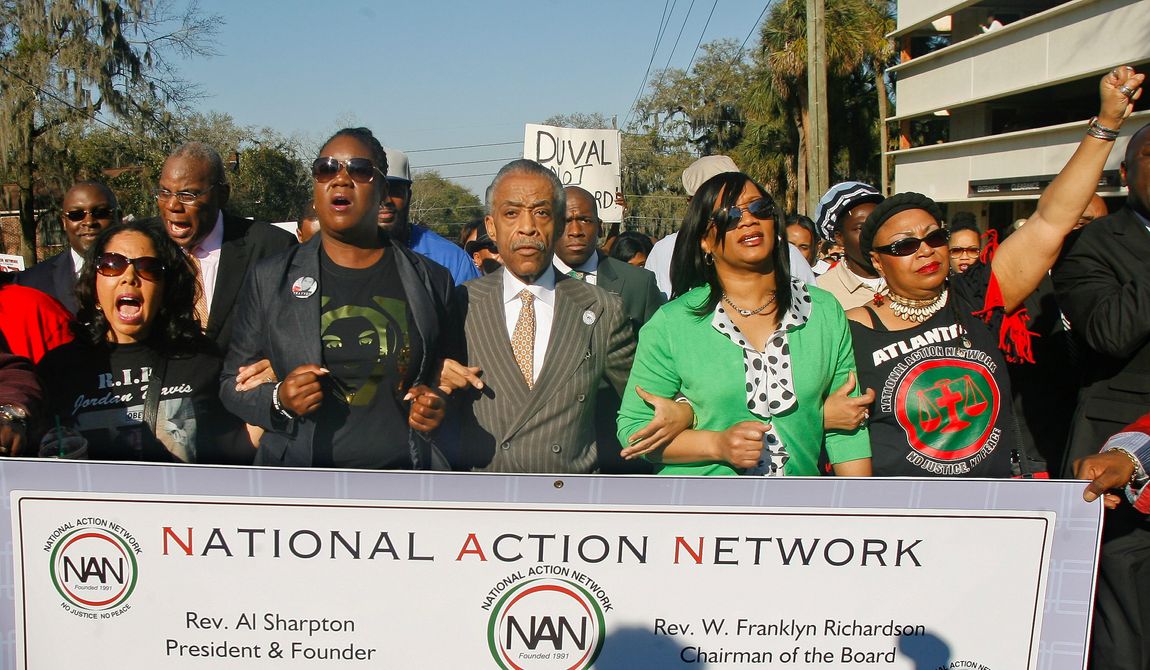
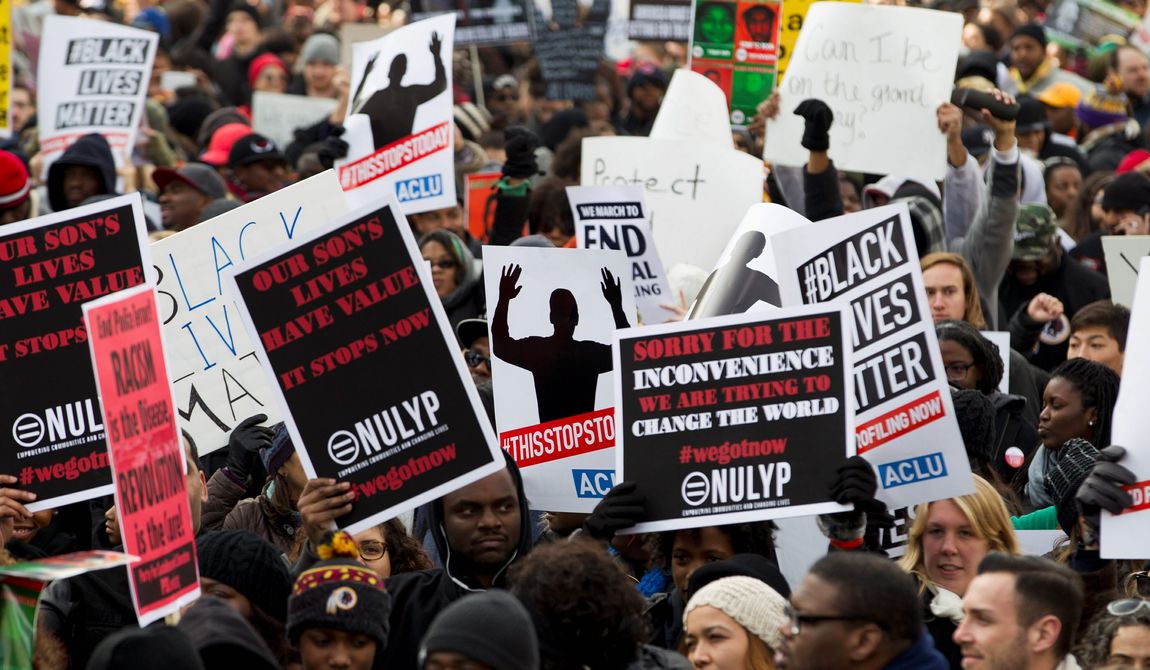
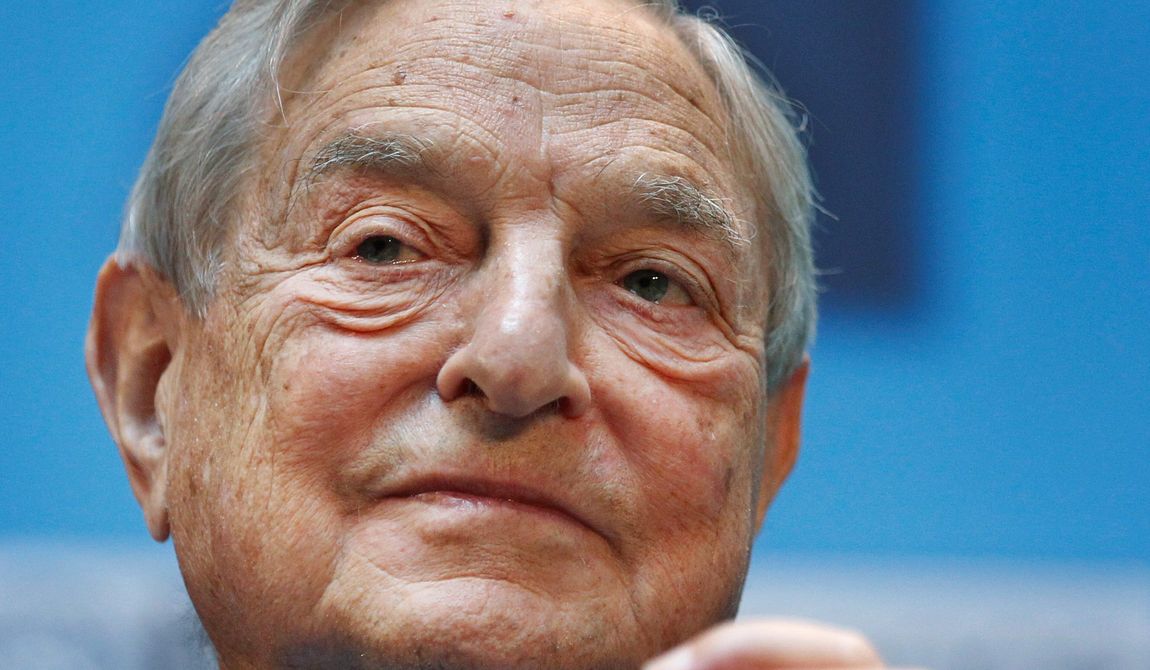
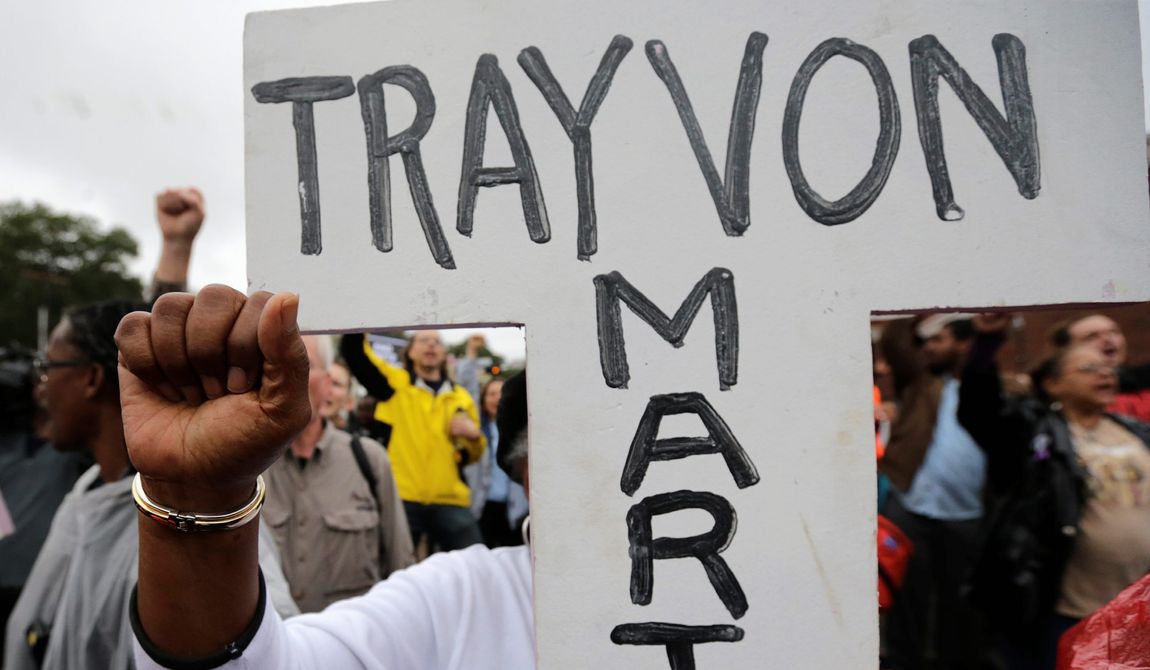
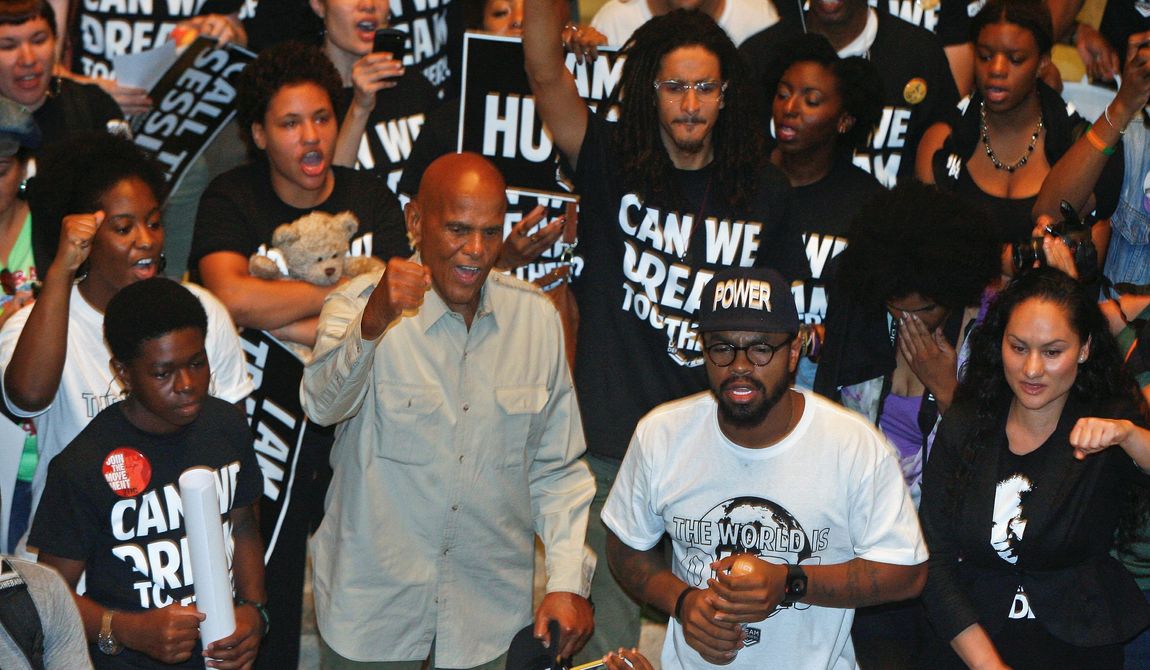
Please read our comment policy before commenting.